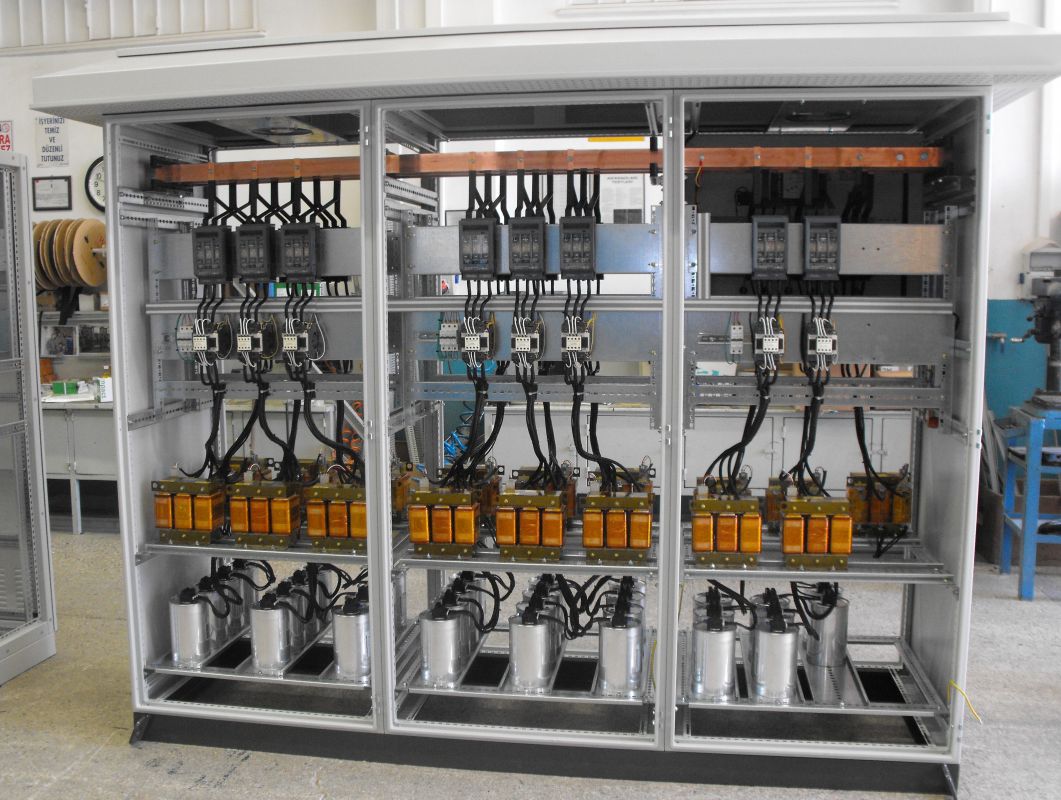
Compensation is the process of reducing reactive power consumption caused by inductive loads in electrical systems using reactive power compensators. Its aim is to optimize energy costs in electrical facilities by improving energy efficiency and correcting the power factor.
Electricity must be transported with minimal loss from the power plant to the smallest consumer. Nowadays, the development of technology and the increasing use of electrical appliances such as refrigerators, washing machines, air conditioners, and heating, ventilation, and cooling devices in every home have led to a gradual increase in the demand for electricity and an increase in the cost of energy production. Indirectly, this situation makes it even more necessary for the electricity transported through the grid to be of high quality, cost-effective, and genuine active energy.
If reactive powers are not compensated for:
* It causes power losses in the grid,
* It reduces the capacity of the generation and distribution system,
* It leads to a decrease in energy transmission capacity in distribution lines where voltage drop limits the transported power.
As we discussed earlier, compensating for reactive energy is indispensable for the country's economy because it increases grid carrying capacity and prevents energy wastage. The most recent decision from the Energy Market Regulatory Authority (EPDK) made it mandatory, Decision No: 284/2 Decision Date: 8/1/2004. (This decision came into effect after being published in the Official Gazette, dated 15/01/2004, and numbered 25347.)
In capacitive systems, it is a transformer circuit element that balances the system by producing inductive reactive power.
In the past, it was sufficient to compensate the system by connecting capacitors to it, but currently, it is not possible to maintain the balance. Therefore, in addition to capacitors, a shunt reactor is required.
Another name for the shunt reactor is the Inductive Load Reactor.
Reactive energy charges are not applied to residential subscribers, single-phase subscribers, subscribers with a connection power of up to 9 kW (inclusive), and subscribers for whom reactive energy charges are not specified in the electricity sales tariffs.
The reactive energy tariff is applied to subscribers who purchase electrical energy under a single or double-term tariff, excluding those mentioned above, under the following conditions.
Active power: it is the power that does work in electricity.
Reactive power: It is the power consumed by electrical machines like motors and transformers that operate with a magnetic field and is used to create the magnetic field. In other words, it is unused power.
Reactive power can be drawn from the grid and sent back to the grid without being used, or it can be generated by machines in our circuit.
Since the loads used in electrical systems are not linear loads in current-voltage characteristics, distortions occur in the currents measured on these systems. In other words, the waveform of the current is not a full sine curve, the system has started to contain harmonics.
Harmonic filtered compensation systems should be used in systems with high harmonic ratios. If a harmonic filtered system is not used, a resonance situation may occur between the capacitors in the compensation system and the inductive loads in the system. This will cause the harmonics in the system to increase.
How much are the panel prices? There is no clear answer to the question, we need to offer you a special offer for your business needs.
When AC (alternating voltage) is applied to a circuit, if the current flowing through the circuit is lower than the voltage, the circuit behaves inductively.
When AC (alternating voltage) is applied to a circuit, if the current flowing through the circuit is ahead of the voltage, the circuit is capacitive.